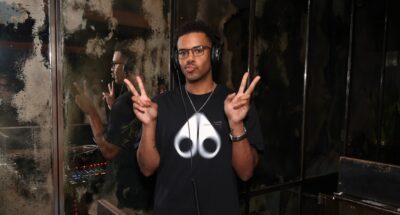Almost Four Years In, the Brooklyn Institute for Social Research Graduates to the Next Level

Rudolph Cronau’s drawing of Wagner’s opera house, Bayreuth, flanked by his birthplace (left) and place of death.
Photo via the Brooklyn Institute for Social Research
Just under four years ago, the Brooklyn Institute for Social Research was founded by Ajay Singh Chaudhary as something of an alternative—for both students and professors—to our current higher education system. Chaudhary—then on his way to earning a PhD at Columbia University; now a lecturer there in the Department of Middle Eastern, South Asian, and African Studies—recently explained to me that he started the Brooklyn Institute because he kept encountering people who showed interest in taking the kind of classes typically only offered in universities (symposiums on Jacques Lacan, say, or Walter Benjamin, both of which are offered by the Institute), and realized there was a desire was not being fulfilled on campuses. And so, Chaudhary tells me, he asked himself, “Where is this going to happen if it’s not going to be in the traditional university anymore?”
The answer, as it turned out, was everywhere from neighborhood watering holes (many of the first Brooklyn Institute classes took place at a favorite Boerum Hill spot, Building on Bond) to cultural institutes (the Goethe Institute played host to a class on German philosophy), and as Chaudhary says, “One of the things we found pedagogically, is that it’s fun for professors to be out and about. I personally love teaching restaurant courses; it’s very lively and fun. And a lot of students love that we’re doing a class at a restaurant where everybody feels really welcome.”
The Institute received a good deal of attention when it first launched (there was coverage in The New Yorker, New York, and our own publication), but even as media focus naturally shifted to other things, the Institute has steadily grown, and many classes, Chaudhary tells me, were “not only filled… but also have waitlists,” with the interest being “driven by student demand.” And so—in just about the same amount of time as it takes to graduate from a traditional university—the Institute is now moving on to a new level itself, and will no be offering between 62-70 classes a year (“basically,” Chaudhary says, “doing what we’ve done in the past year in one year”), with a projected enrollment of 1,000 students, who can take classes on anything from “A Ruthless Criticism of Everything Existing: An Introduction to Marx” to “Infinity: History, Mathematics, Philosophy.”
It is, Chaudhary tells me, possible to “build your own little curriculum out of our larger curriculum,” and it’s also very clear that the Institute functions as, Chaudhary says, “a social arts college,” which is based on the idea of what “a college would look like for working adults.” The students in these classes are in the classes because they want to be there; the instructors (all of whom are experts in their fields) are similarly there because they want to be a part of this institution, one which, Chaudhary stresses, is one where “everyone gets paid… educational labor matters, academic labor matters, all labor matters.”
That this type of class has been appealing for students and teachers alike is easily understandable after talking to Chaudhary for just a short time; his passion for the project is infectious, true, but also, the way he speaks of an environment where students have plenty of “open space to figure things out themselves” and in which the instructors “teach up” and assume a certain level of inherent curiosity and knowledge in their pupils is a refreshing change from the way many college classes are experienced, making it clear that the Brooklyn Institute might be just the escape from the ivory tower for which many of us have been longing.
The Brooklyn Institute for Social Research is now enrolling students for classes this fall. Check out their full course offerings here.
You might also like 



















